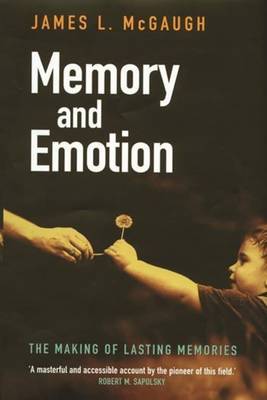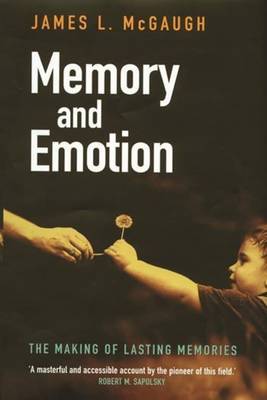
- Afhalen na 1 uur in een winkel met voorraad
- Gratis thuislevering in België vanaf € 30
- Ruim aanbod met 7 miljoen producten
- Afhalen na 1 uur in een winkel met voorraad
- Gratis thuislevering in België vanaf € 30
- Ruim aanbod met 7 miljoen producten
Zoeken
Omschrijving
Most of us remember where we were and what we were doing on September 11, 2001. Why do most experiences leave little trace while some--even terrible ordeals that people wish they could forget--leave memories that last a lifetime? That is the mystery at the heart of this book. Drawing on fascinating research and case studies, James McGaugh, a distinguished neuroscientist, reveals that the key to understanding how memories are created may well be understanding how they are lost. He shows that lasting memories are not stored instantly. Why the delay? The author explains how the slow consolidation of memory has important adaptive consequences. It allows physiological processes activated by experiences to regulate the strength of the memory of the experiences. Emotionally arousing experiences induce the release of stress hormones, which act on the brain to influence the consolidation of our memories of recent experience. These findings have important implications for the controversial issues of post-traumatic stress disorder and repressed memory syndrome. From the prescientific writings of William James to the animal studies of the memory-research pioneers Pavlov, Thorndike, and Tolman, to the latest research of psychologists and neurologists drawing on PET imaging studies of the brain and laboratory experiments involving a variety of drugs, this succinct book provides a wealth of information.
Specificaties
Betrokkenen
- Auteur(s):
- Uitgeverij:
Inhoud
- Aantal bladzijden:
- 192
- Taal:
- Engels
- Reeks:
Eigenschappen
- Productcode (EAN):
- 9780231120227
- Verschijningsdatum:
- 16/07/2003
- Uitvoering:
- Hardcover
- Formaat:
- Genaaid
- Afmetingen:
- 146 mm x 244 mm
- Gewicht:
- 421 g

Alleen bij Standaard Boekhandel
+ 356 punten op je klantenkaart van Standaard Boekhandel
Beoordelingen
We publiceren alleen reviews die voldoen aan de voorwaarden voor reviews. Bekijk onze voorwaarden voor reviews.











